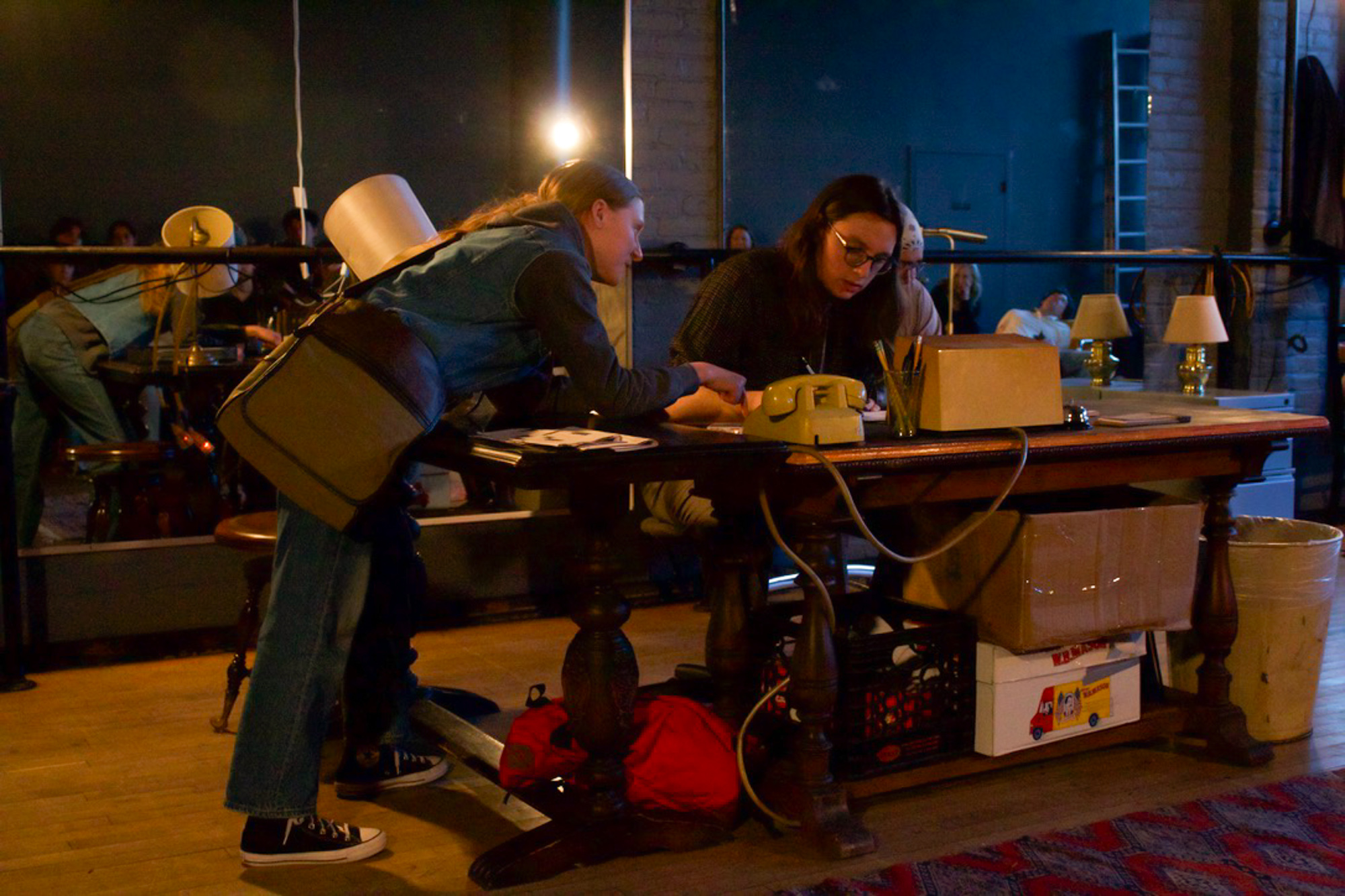A dozen undergraduate actors performed vocal exercises and chatted before rehearsal for the Boston University School of Theatre’s production of “The Hot L Baltimore.” Meanwhile, Grant Sorenson, a first-year graduate student in the College of Fine Arts, scurried about the room to make sure the set was perfect.
“I think we have all the props,” he announced, met with cheers from the cast. “I think we have all the props.”
SOT presented “The Hot L Baltimore” — a comedy about the residents of a hotel so old, the “E” fell off its sign — from Feb. 23 to Feb. 25 in the CFA building. Directed by Sorenson, the production is the SOT’s newest “Grad-Collab” project, which culminates from undergraduate and graduate students’ work in their respective Graduate Collaboration courses.

The SOT’s Graduate Collaboration courses allow first-year graduate directors, designers, production managers and technical managers collaborate with undergraduate actors to produce plays the students select themselves. Teams develop their shows in class during the fall semester and perform them in the spring.
“The point of the whole class is that they learn to collaborate,” said Susan Mickey, the director of the SOT and professor of costume design. “They start to develop processes, systems and habits for being a good collaborator.”
Mickey said that a large committee of students and faculty sort through hundreds of possible scripts for the projects a year in advance. The committee then whittles down and ranks the remaining productions according to cast size, gender breakdown and relevance of their subject matter.
In the fall, Sorenson, his cast and his technicians received four scripts and were tasked with picking one to produce in the spring. Sorenson said his team chose the “Hot L Baltimore” because it would be the most interesting to produce.
“[The project is] under [a] pretty limited budget,” Sorenson, who is pursuing an MFA in directing, said. “So it’s all about being scrappy, being flexible and kind of finding things where you can, which works well for a play about people living in a derelict hotel.”
“The Hot L Baltimore” was written by American playwright Landford Wilson and premiered on Broadway in 1973. Wilson’s characters are all people “forgotten by society,” such as the elderly, the lower class and members of the LGBTQ community. They originated from real people Wilson knew from Greenwich Village bars and concert venues.
“[Wilson was] really interested in, who were people in society who were not being represented in theater and finding ways to put those characters on stage in really, fully human ways,” Sorenson said.
To match the realism of Wilson’s play, sound designer Jessie Chen, a first-year graduate student in CFA, opted to exclude background music from the play except for during transitions. She decided to have a clock tick throughout Act III to heighten the relative quiet of the hotel.
As the cohort rehearsed throughout the fall semester, undergraduates in the cast and stage crew had the valuable opportunity to learn practical, career-based skills from their directors and technicians.
Mickey described this weekend’s production of “The Hot L Baltimore” as one where “each student was really getting a good role.”
“Everyone is learning from each other,” said Jacob Bergman, a senior theatre arts major in CFA who played Mr. Katz, the manager of the titular hotel. “We’re all sort of at different stages in our careers, and in terms of our educational processes, there’s a lot of overlapping pedagogy between the graduate programs and the undergrad programs.”
The inspiration goes both ways: Sorenson said working with undergraduates has pushed him as an artist.
“It’s a real sort of team effort in terms of working together as a group,” he said. “How do we take all of those dreams and plans, and actually put them into reality?”
The SOT’s second Grad-Collab play, “Museum,” will take place from April 27 to 28.
Bergman described his character as “the glue” among the hotel residents, who share a “family dynamic” — one that mirrors the relationship of the production’s cast and crew.
“One of the benefits of working with a cast and a director that are so empathetic and understanding and caring for a real productive space is that not only does the script dictate that we’re a family, but the room feels like a family,” Bergman said.
















































































































